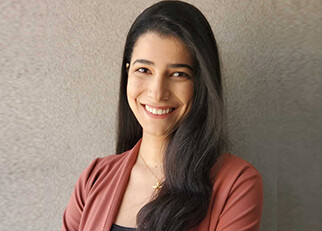
We’re delighted to celebrate Negin Khosraviani as the latest recipient of the prestigious Vanier Scholarship. She joins the ranks of 16 other Laboratory Medicine and Pathobiology (LMP) students over the last 8 years to have received this very significant award.
The Vanier Canada Graduate Scholarships programis designed to attract and retain world-class doctoral students by offering them a significant financial award to assist them during their studies at Canadian universities. Vanier Scholars demonstrate leadership skills and a high standard of scholarly achievement in the social sciences and humanities, natural sciences and engineering, and health-related fields.
Negin joined the LMP Specialist Program in Pathobiology and was fascinated by the process of making and reporting discoveries that she studied in her third and fourth year. “I loved the science stories these papers were telling, and I knew right then that I wanted to go into research.”
Dr. Karim Mekhail, who teaches in the program, spotted the potential in Negin. He encouraged her to complete a PhD in his lab. “I was the baby in the lab for a while,” laughs Negin, “all the other lab members were in at least their 4th year of a PhD and I was straight out of my undergrad. But they were the ones that made the transition easier for me – it was a huge learning curve, but I had so much support.”
In the Mekhail Lab, Negin is studying triple-negative breast cancer. As a slow-growing cancer with a poor prognosis, it is often missed by current therapies targeting faster-growing cancers.
DNA provides the code for our cell’s activities, while RNA converts that code into proteins to carry out cellular functions. When DNA ‘transcribes’ these instructions onto RNA, this RNA can bind to DNA, changing it from a double-stranded structure to a hybrid three-stranded structure known as an ‘R-loop structure’ - there is an increased level of these in breast cancer cells. The BRCA1 gene provides instructions for making a protein that acts as a tumor suppressor and is absent in many breast cancers. Negin’s research investigates links between the BRCA1 gene and R-loop structures and whether we can modulate these links to selectively kill cancer cells, revealing novel therapeutic approaches.
Negin loves the unpredictability of some of the research she is conducting. “I actually love getting unexpected results,” she explains. “We work with a big hypothesis, but each experiment has a mini hypothesis. Although it's difficult at times, unexpected results often open new doors: you see something you were not expecting, and you have to consider new possibilities”.
Receiving the Vanier means Negin has more time and resources to explore more possibilities and open new doors. On receiving the email from Vanier, she read it over and over, checking the website all day until she finally accepted that it was true. “I don’t know who was more excited – me or my sister (her twin and fellow LMP graduate student in the Fish Lab). It was a real mix of excitement and disbelief.”
Leadership is a focus of the Vanier award, and Negin has a proven track record in this area due to her work in her community and for her health advocacy. She has a strong focus on mentorship both within the university in various roles as a teaching assistant, and in programs for children and youth. Negin is a Zoroastrian which is an ancient Persian religion for whom community and mentorship are particularly important. She is heavily involved in her community from teaching self-defense, organising plays, and introducing young people to science.
She is also a member of the Universities Allied for Essential Medicines (UAEM), where she has advocated for equal access to COVID vaccines, research, and medicine. “I was born in Iran,” explains Negin, “and there isn’t the same level of mentorship and advocacy there. Had I stayed there, I don’t think I would have ended up in research – my life would have been completely different. I want to give the same opportunities to others, so that’s what has pulled me into these activities.”
The slow nature of the cancer Negin studies means experiments take time, something that caused challenges during the pandemic as “it changed up the schedule. I had everything planned and had to rethink what I was doing.”
Negin’s drive and commitment, and ability to adapt to the new research environment ensured she stayed on track. Dr. Mekhail commented, “It’s a pleasure working with Negin, who has a strong passion and commitment for science. She has what is necessary to achieve any goal she sets.” As someone who dreamed from a young age to lead her own research lab, she is certainly well on her way.
How communicating science secured a Vanier Award
Vanier Scholar helps discover how mitochondria are targeted for degradation